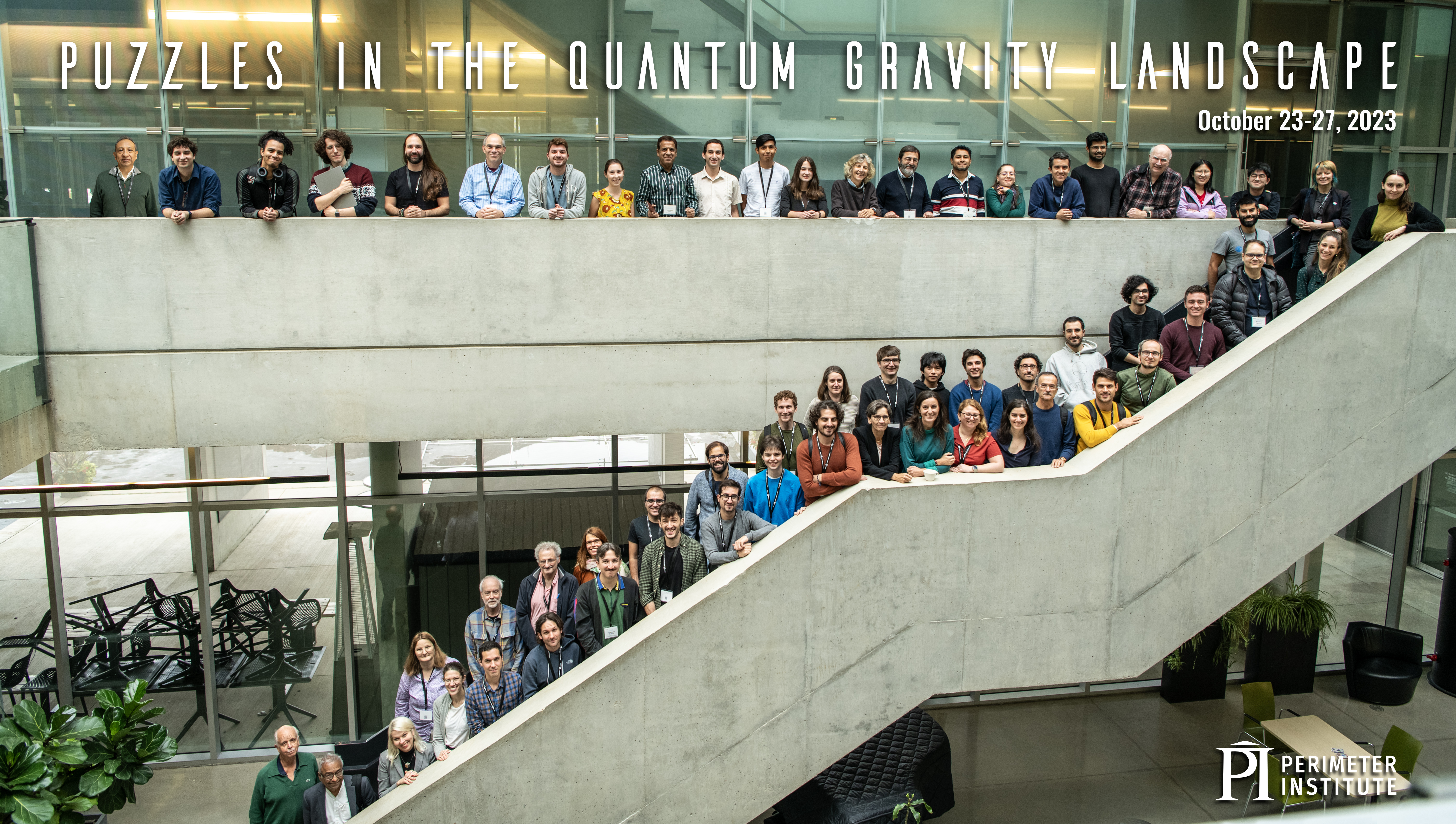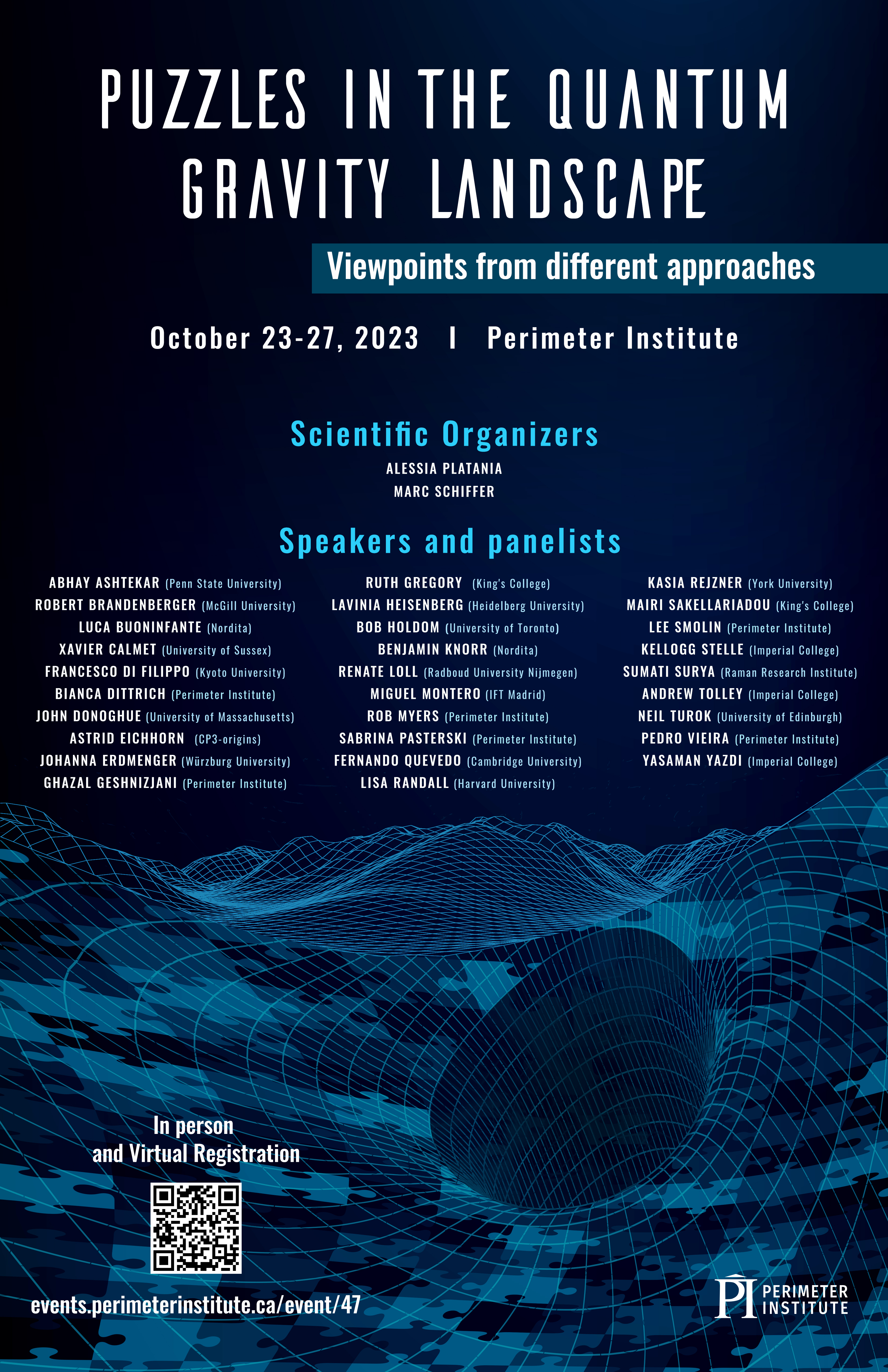Puzzles in the Quantum Gravity Landscape: viewpoints from different approaches
PI/1-100 - Theatre
Perimeter Institute for Theoretical Physics
Unraveling the quantum nature of gravity is one of the most pressing problems of theoretical physics. Several ideas have been put forward and resulted in a number of theories of quantum gravity. While these theories have explored different facets of the “quantum gravity landscape”, all viable approaches should ultimately make contact with observations, and answer exciting questions in cosmology and black-hole physics.
Sharing knowledge, exchanging ideas, and building a dictionary between different theories are crucial steps toward answering these questions, efficiently contrasting different theories, and ultimately reaching a deeper understanding of our Universe.
This conference will contribute to these goals by bringing together leading experts in different approaches to quantum gravity, gravitational effective field theory, black-hole physics, and cosmology. We will focus on specific puzzles in quantum gravity and their resolutions within different approaches. The conference will be highly interactive, with plenty of time to discuss common problems, understand the big picture, and develop novel connections between fields.
Registration: Registration is now open, and both in-person and virtual participation is welcome. Online participants will be able to interact on an equal footing in question sessions and discussions. In-person attendance is limited and will be approved on a first-come, first-served basis. Talks are by invitation only, but in-person participants are encouraged to apply to present a poster.
Spam warning: There is an increasing number of scam agencies reaching out to conference speakers and attendees. Perimeter Institute does not use third-party agencies. We advise speakers and attendees to ignore emails and not to provide any details to anyone who is not from Perimeter Institute.
Confirmed Speakers and Panelists:

Territorial Land Acknowledgement
Perimeter Institute acknowledges that it is situated on the traditional territory of the Anishinaabe, Haudenosaunee, and Neutral peoples.
Perimeter Institute is located on the Haldimand Tract. After the American Revolution, the tract was granted by the British to the Six Nations of the Grand River and the Mississaugas of the Credit First Nation as compensation for their role in the war and for the loss of their traditional lands in upstate New York. Of the 950,000 acres granted to the Haudenosaunee, less than 5 percent remains Six Nations land. Only 6,100 acres remain Mississaugas of the Credit land.
We thank the Anishinaabe, Haudenosaunee, and Neutral peoples for hosting us on their land.

